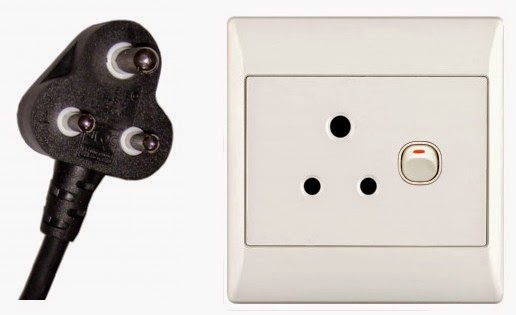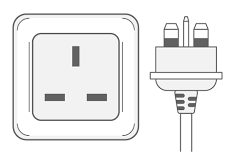United Arab Emirates
History
In ancient times, it appears that the land of the Emirates has been occupied for thousands of years. In the emirate of Sharjah, they recovered stone tools from Jebel Faya which reveals an occupation of the people from Africa some 127,000 years ago and a stone tool used for slaughtering animals were discovered at Jebel Barakah on the Arabian coast, which suggests an even older habitation from 130,000 years ago. Several sea Travel routes were opened; bringing other people from different countries to enter and trade in the country. The Greek and Phoenician settlers also went through the Arabian Peninsula territory. There are also other settlers, such as the Romans, who tried to invade the peninsula but unfortunately failed. Then the evolution of Islamic culture and religion had marked the stability of the country. The influence of the Umayyah Dynasty brought the country to progress, making the Gulf a global centre for navigation and trade.
Culture
Emirati culture is based on Arabian culture and has been influenced by the cultures of Persia, India, and East Africa. Arabian and Persian inspired architecture is part of the expression of the local Emirati identity. The list of the museums in UAE includes some of regional repute, especially Sharjah which has the Heritage District that contains 17 museums which was known as the Cultural Capital of the Arab World in 1998. And Al Quoz in Dubai, has attracted a number of art galleries as well as museums such as the Salsali Private Museum.
Education
The Ministry of Education monitors the education system through secondary level in all emirates except Abu Dhabi, where it falls under the authority of the Abu Dhabi Education Council. The public schools are government-funded for all UAE citizens, and their curriculum is created to match the United Arab Emirates’ development goals and values. The medium of instruction in public schools is Arabic but with emphasis on English as second language.
The Abu Dhabi Education Council (ADEC), the Dubai Education Council (DEC), and the UAE Ministry of Education (MOE) are each tasked with education reform, while preserving local traditions, principles and the cultural identity of the UAE.
Other Facts
Capital: Abu Dhabi
Dialing code: +971
Currency: United Arab Emirates dirham
Ethnic groups (2015): 27.15% Indian; 12.53% Pakistani; 11.32% Emirati; 7.31% Bangladeshi; 3.13% Sri Lankan; 38.56% others
Population: 9.157 million (2015) World Bank
Weather
Abu Dhabi boasts a warm, sunny climate all-year round. The winter season (December to mid-March) promises perfectly balmy weather with occasional rainfall and an average daytime temperature of 25℃. Summertime (late May to September) sees daytime temperatures soar to a sweltering 45℃ and higher, but this modern city is equipped for the heat with air-conditioning everywhere and plenty of indoor entertainment on offer. While winter, late autumn and spring are ideal times to visit Abu Dhabi if you’re looking to enjoy outdoor fun, like watersports, dune bashing or camel riding, there’s tons to do in the summer too. Think thrilling rides in entirely indoor theme parks, free falling in the world’s tallest indoor skydiving tunnel at Clymb™, shopping at incredible malls, and more. <Weather in Abu Dhabi>
Spring: Abu Dhabi’s spring season (mid-March to May) sees the temperatures start to rise, with sporadic rainfall occurring in March. It is a great time to visit the capital as it plays host to many exciting cultural events and trade shows.
Winter: Winter in Abu Dhabi is from December to mid-March. It is considered a great time to visit the city thanks to comfortable, moderate temperatures and occasional rainfall. The beaches, desert trips and mountain adventures are best experienced in winter.
Summer: Summertime in Abu Dhabi (late May to September) sees average daytime temperatures of around 45℃, with humidity levels at 80-90%. Air-conditioning and exciting indoor entertainment, from shopping to art galleries, indoor theme parks and more, ensure you’re never bored.
Autumn: The autumn season in the UAE capital is from September to December. As the summer heat begins to subside, the milder autumn weather calls for more beach outings and watersports activities around the incredible archipelago, which is made up of hundreds of islands.
Timezone
Currency
The local currency is the UAE dirham (AED or Dhs), which is divided into 100 fils and is pegged against the US $ (US $ 1: AED 3.6725).
Credit and debit cards are widely accepted. Foreign currencies and travellers’ cheques can be exchanged in licensed exchange offices, banks and hotels, and a passport is required. Personal cheques can be a bit trickier and many places won’t accept them.
Communication
Mobile and Internet Provider
UAE’s mobile providers Du and Etisalat operate on a GSM network. Both networks offer contract prepaid services and pay-as-you-go plans in a wide range of packages.
You can visit the operator’s office, business center or an authorized reseller to set up a contract arrangement with them. Passport and residency visa are needed.
For travellers, the best and cheapest way is to get a prepaid SIM card (Wasel), where you can buy online, at the provider’s office or retailer’s outlets. For a 165 AED registration, you can start with a credit of 10 AED. Just ask the reseller to activate the SIM card of your mobile phone immediately as this has to be done within an hour of purchase.
Electricity, Power Plugs, and Sockets
Voltage & Supply: The standard voltage is 220V and the standard frequency is 50hz. You can electric appliances that have a voltage between 220V-240V.
If the frequency in your country differs from what in UAE, it is not advised to use your appliances. But if there is no voltage difference, you could (at your own risk) try to use the appliance for a short time and be careful in moving, rotating and time-related appliances like clocks, shavers, and electric fan heaters. Always check the label on the appliance. Some appliances never need a converter. If the label states ‘INPUT: 100-240V, 50/60 Hz’ the appliance can be used in all countries in the world. This is common for chargers of tablets/laptops, photo cameras, cell phones, toothbrushes, etc.
Power Plugs and Sockets: The available power plugs and sockets in UAE are type C, D & G. The most commonly used is type G. Below are the pictures of the plugs and sockets. If the plugs in your country are different from those shown here, we advise that you bring your adapter for your own convenience.

Type C
Also Works with plugs E & F

Type D
Sometimes works with plug M

Type G
No alternative plugs, you need an adapter for this.
UAE Tax
VAT
From January 1, 2018 VAT at a standard rate of 5% was applied to most goods and services, with some goods and services subject to a 0% rate or exempt. The 0% VAT rate will apply to goods and services exported outside the VAT-implementing GCC member states, international transportation, crude oil/natural gas, the first sale of residential buildings, and some specific areas such as health and education. VAT exemption will apply to certain financial services, as well as to the residential real estate sector. Designated zones (FTZ) will be treated as being outside UAE territory with certain goods movements not subject to UAE VAT, however services in FTZ will be subject to UAE VAT. The mandatory VAT registration is Dh375,000 ($102,075) and voluntary registration from Dh187,500 ($51,037.5), with VAT grouping allowed. Specific documentary and record-keeping requirements are required, such as tax invoices and monthly VAT returns for large tax payers and quarterly for others. Where businesses have an excess of input VAT to carry forward then they can claim that VAT back from the tax authorities.
Municipal & Property Tax
Municipal taxes are imposed on hotel services and cinema shows. Service charge percentages vary among the emirates. A service charge of 5% to 10% is charged on food purchased in restaurants. Hotels charge a 10% to 15% service charge per night on room rates. These charges are usually included in the customer’s bill, which the municipality will collect from restaurants and hotels. Hotels also charge an additional 15% service charge on the services they provide.
Most emirates impose a municipality tax on properties, mostly by reference to the annual rental value. It is generally the tenants’ obligation to pay the tax; however, the tenants’ employer will typically pay the tax on behalf of the employee. In some cases, separate fees are payable by both tenants and property owners. For example, in Dubai, it is currently imposed at 5% of the annual rental value for tenants or at 5% of the specified rental index for property owners.
By: Oxford Business Group
Read more information about taxes in Dubai, you may visit Oxford Business Group
Tips and Service Charge
There is no regulation when it comes to tipping in Dubai. Though it has been a custom to tip but it would still depend from your discretion whether to give or not.
Almost all major restaurants are charging 10% service charge (mandatory) and 6% government tourism fees on your bill. The service charge will not go directly to your waiter but is handled by the management and divided equally to all the staff of the establishment at the end of the month. But if you are happy with the service you may give tip to your waiter. This amount will not be divided to all the staff but to your waiter alone.
Tipping can be done via cash or card as part of your bill.
Click below to find out more information.
Tipping in Dubai
Service Charge

